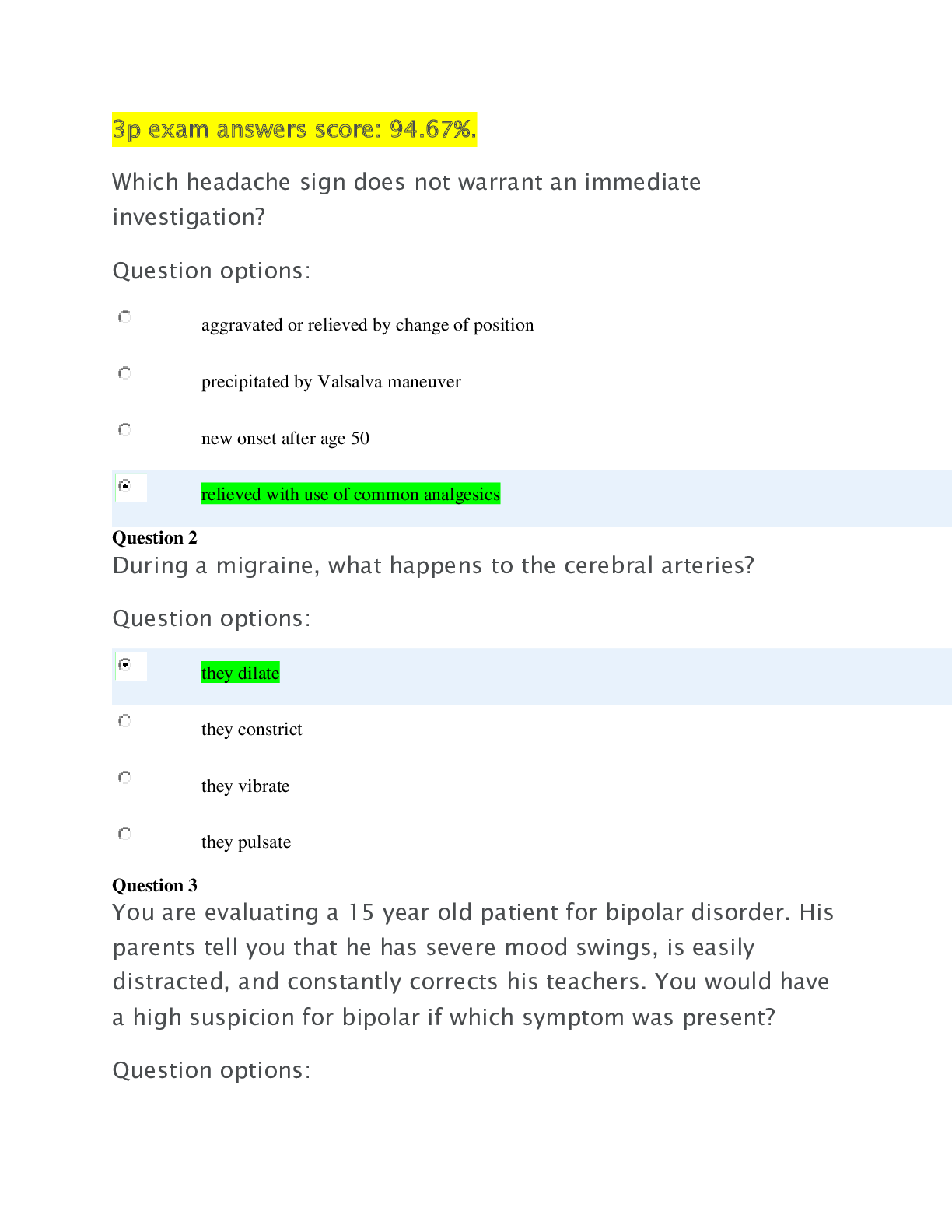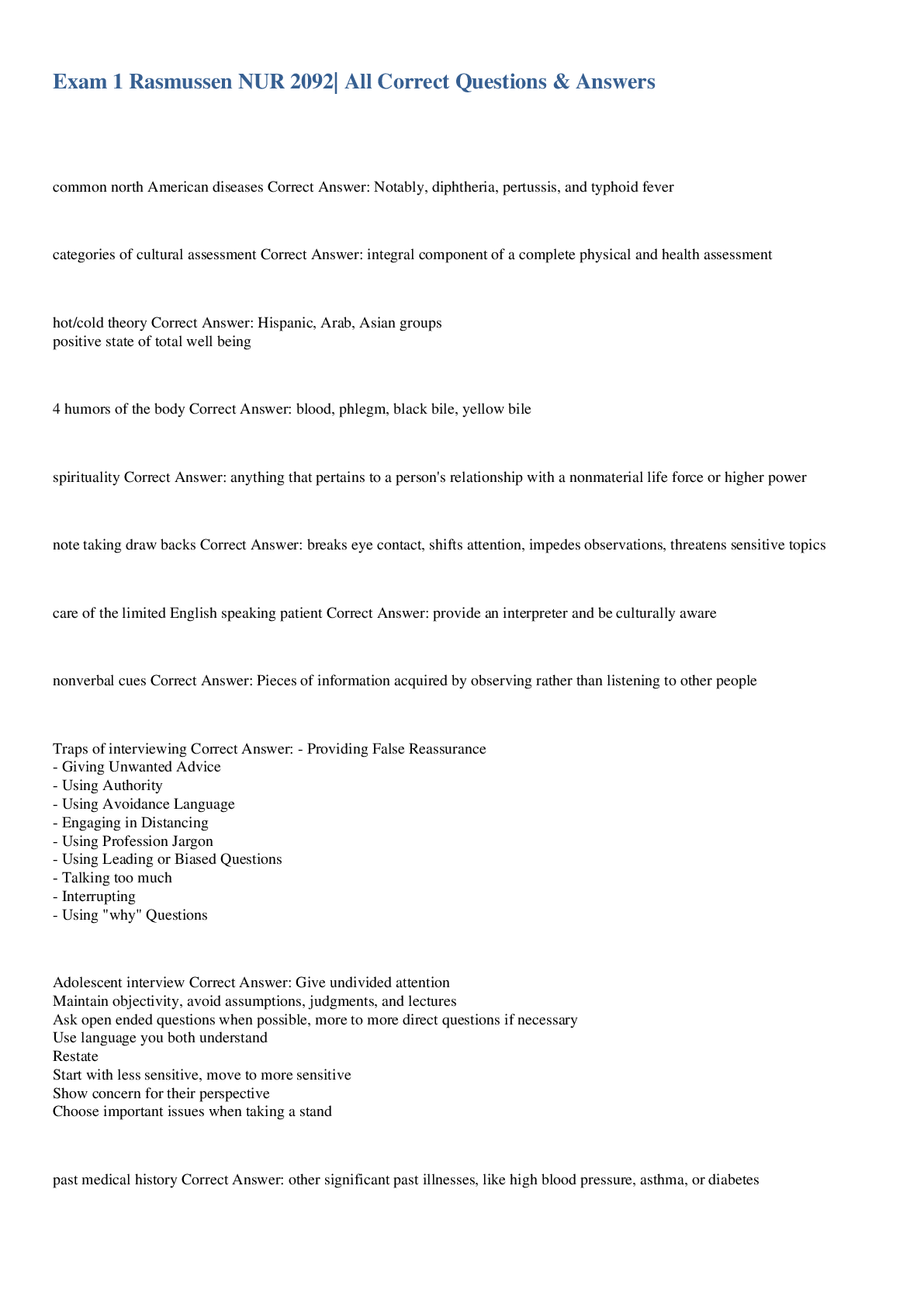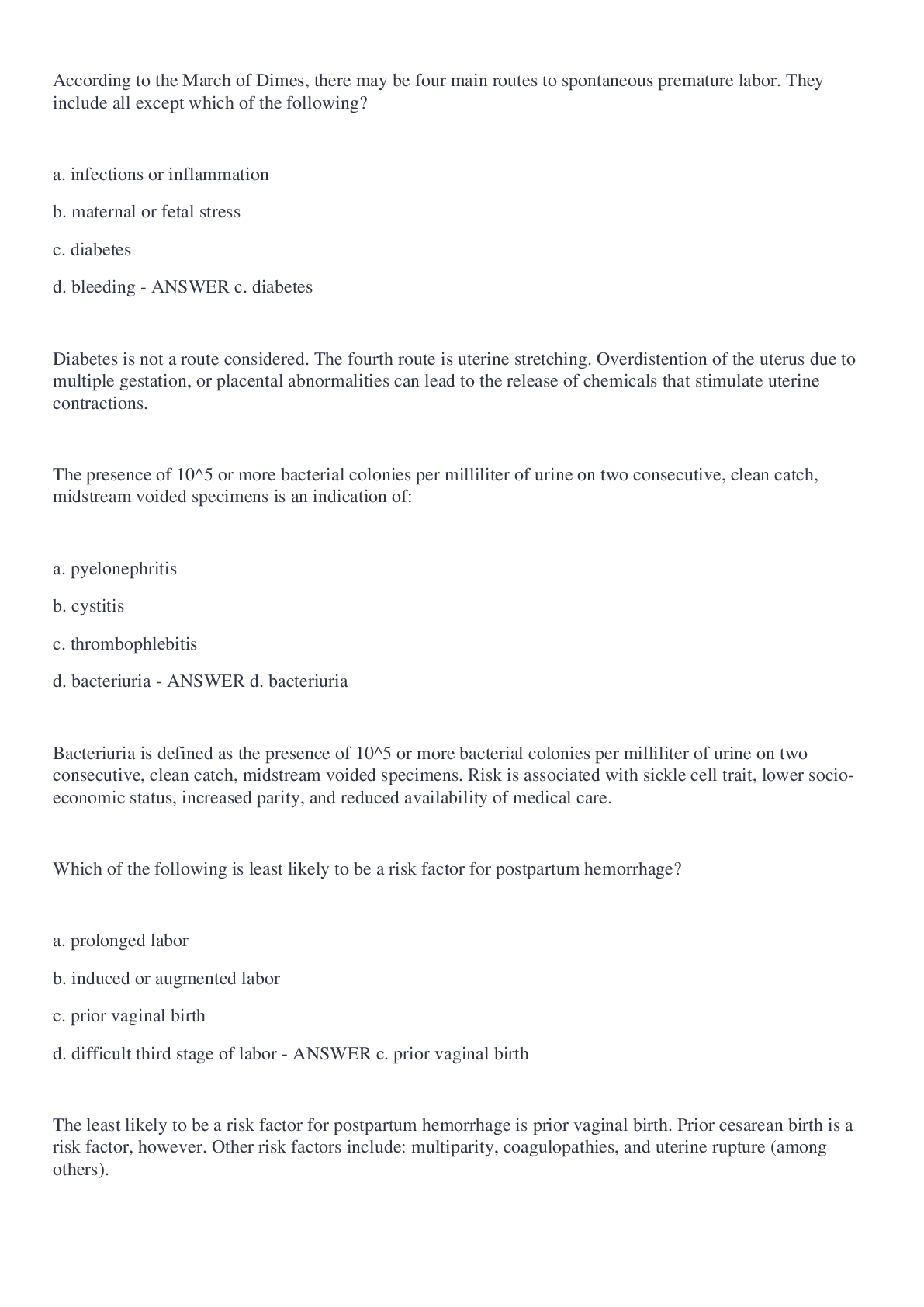Business > EXAM > Practice Test 3 Microeconomics With all correct question and answers (100 Verified) (All)
Practice Test 3 Microeconomics With all correct question and answers (100 Verified)
Document Content and Description Below
Practice Test 3 Microeconomics With all correct question and answers (100 Verified)Practice Test 3 Microeconomics Directions: For each of the following questions provide the solution in the spa... ce provided. There is only one correct solution to each question. 1. Which of the following is not an assumption of the theory of perfect competition? a. There are many sellers and many buyers, none of which is large in relation to total sales or purchases. b. Each firm produces and sells a differentiated product. c. Buyers and sellers have all relevant information with respect to prices, product quality, and sources of supply. d. There is easy entry and exit. ANS: B 2. The theory of perfect competition generally assumes that a. sellers act independently of other sellers, but buyers do not act independently of other buyers. b. buyers act independently of other buyers, but sellers do not act independently of other sellers. c. buyers and sellers act independently of other buyers and sellers. d. neither buyers nor sellers act independently of other buyers and sellers. ANS: C 3. In the theory of perfect competition, a. sellers of the product are not influenced by other sellers and therefore have virtually complete control over the production and pricing of their product. b. buyers of the product may have a preference as to whom they purchase from based on brand loyalty. c. buyers and sellers of the product know everything that there is to know about the product. d. it can be quite expensive for a firm to enter this type of market, but once the firm is established, it will be a profitable venture. ANS: C 4. Does a real-world market have to meet all the assumptions of the theory of perfect competition before it is considered a perfectly competitive market? a. No, probably no real-world market meets all the assumptions of the theory of perfect competition. All that is necessary is that a real-world market behave as if it satisfies all the assumptions. b. Yes, if a real-world market does not meet the assumptions, then it cannot be considered a perfectly competitive market. c. Yes, unless it is a new market such as the computer market. New markets are not held to the same assumptions as old, more established markets. d. No, but it does have to meet the assumption of producing and selling a homogeneous product. It does not have to fully meet the other assumptions. ANS: A 5. A "price taker" is a firm that a. does not have the ability to control the price of the product it sells. b. does have the ability, although limited, to control the price of the product it sells. c. can raise the price of the product it sells and still sell some units of its product. d. sells a differentiated product. e. none of the above [Show More]
Last updated: 1 year ago
Preview 1 out of 11 pages
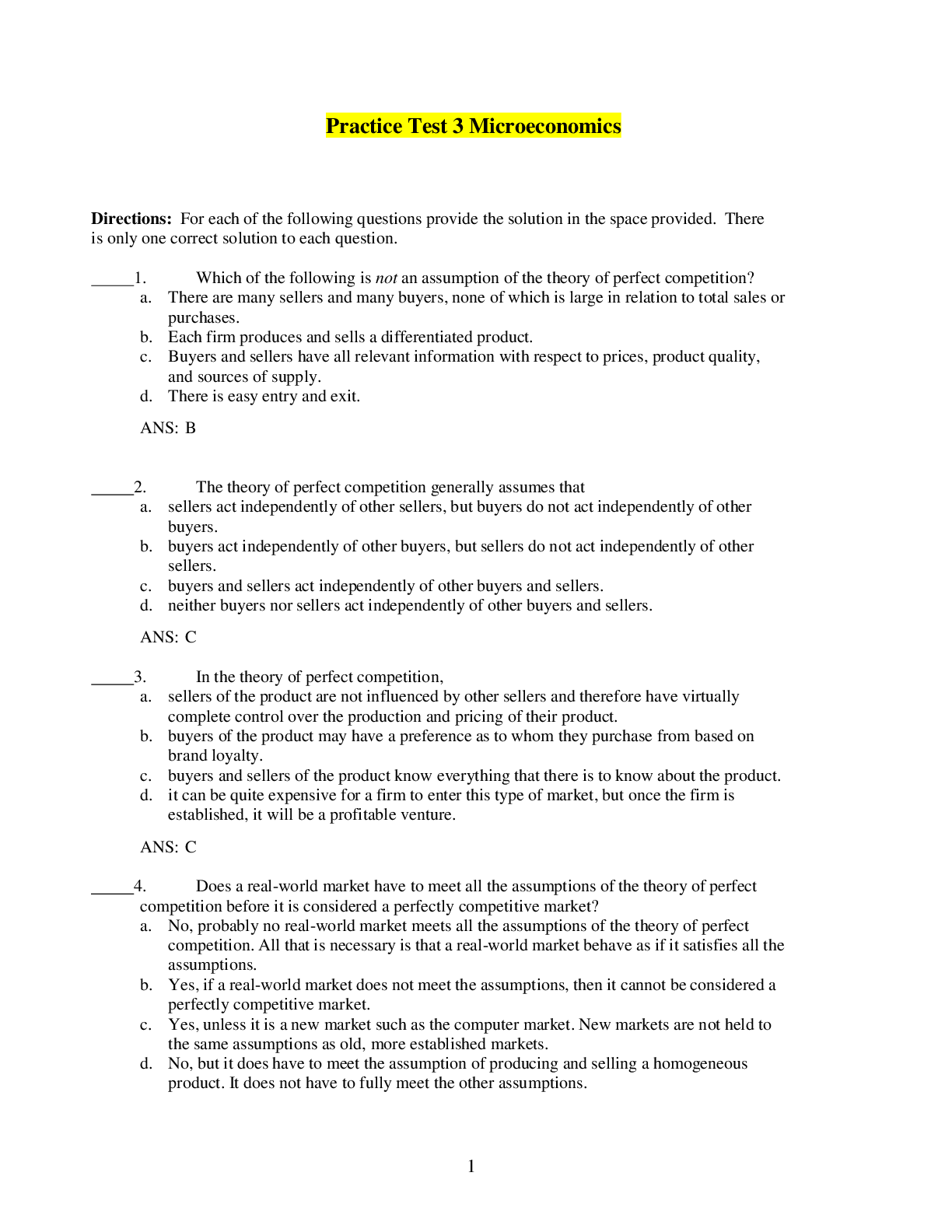
Reviews( 0 )
Document information
Connected school, study & course
About the document
Uploaded On
Mar 01, 2022
Number of pages
11
Written in
Additional information
This document has been written for:
Uploaded
Mar 01, 2022
Downloads
0
Views
43

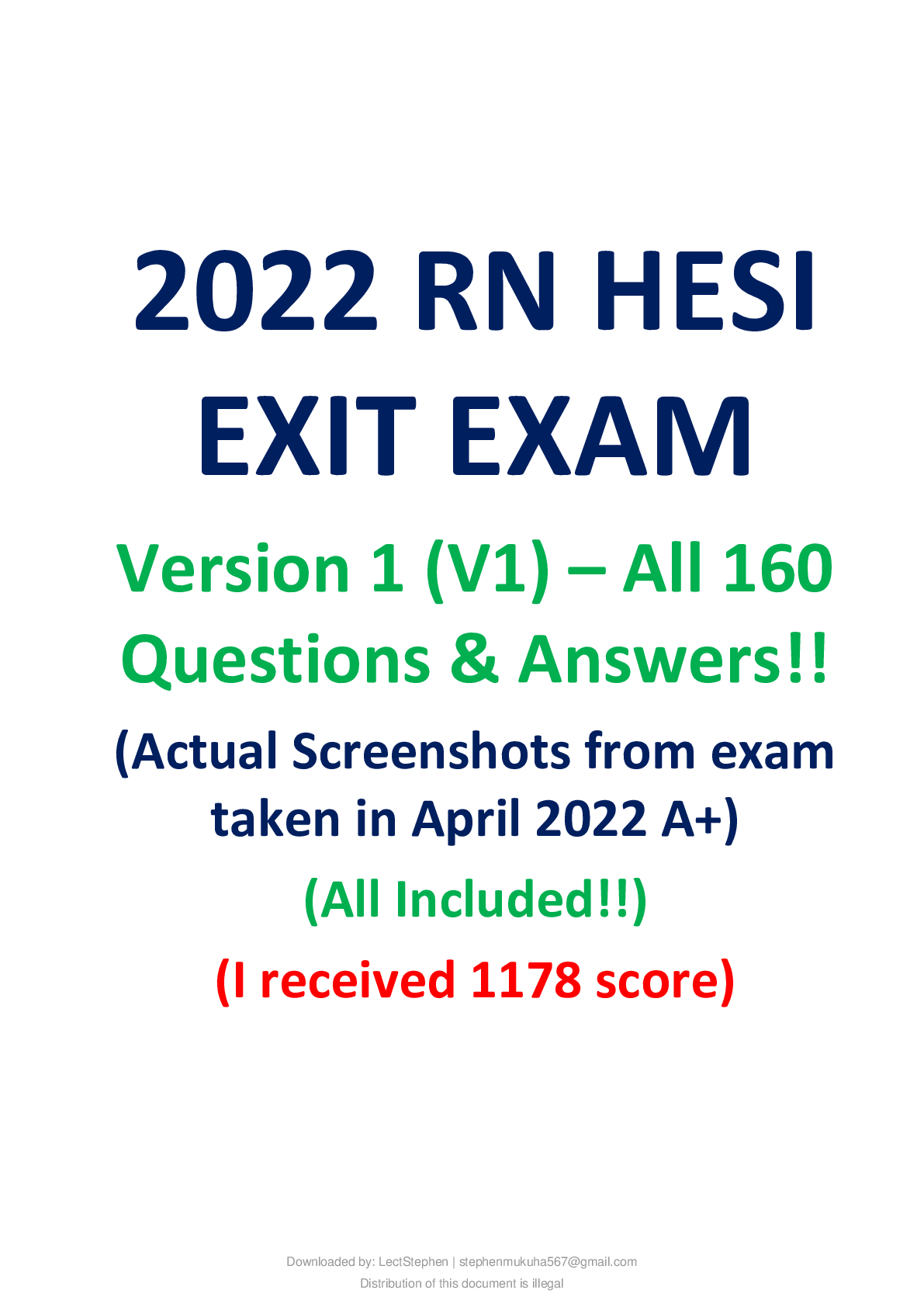
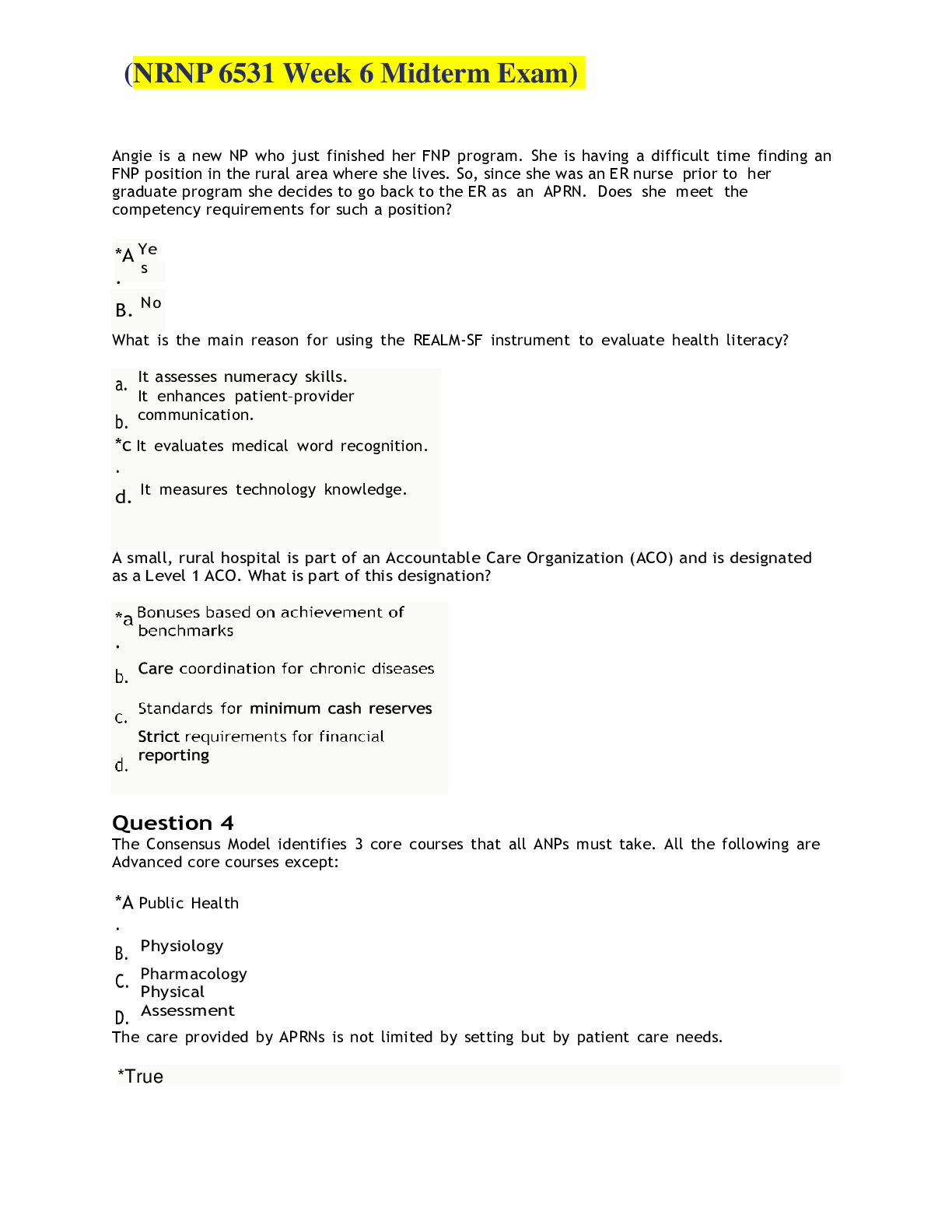
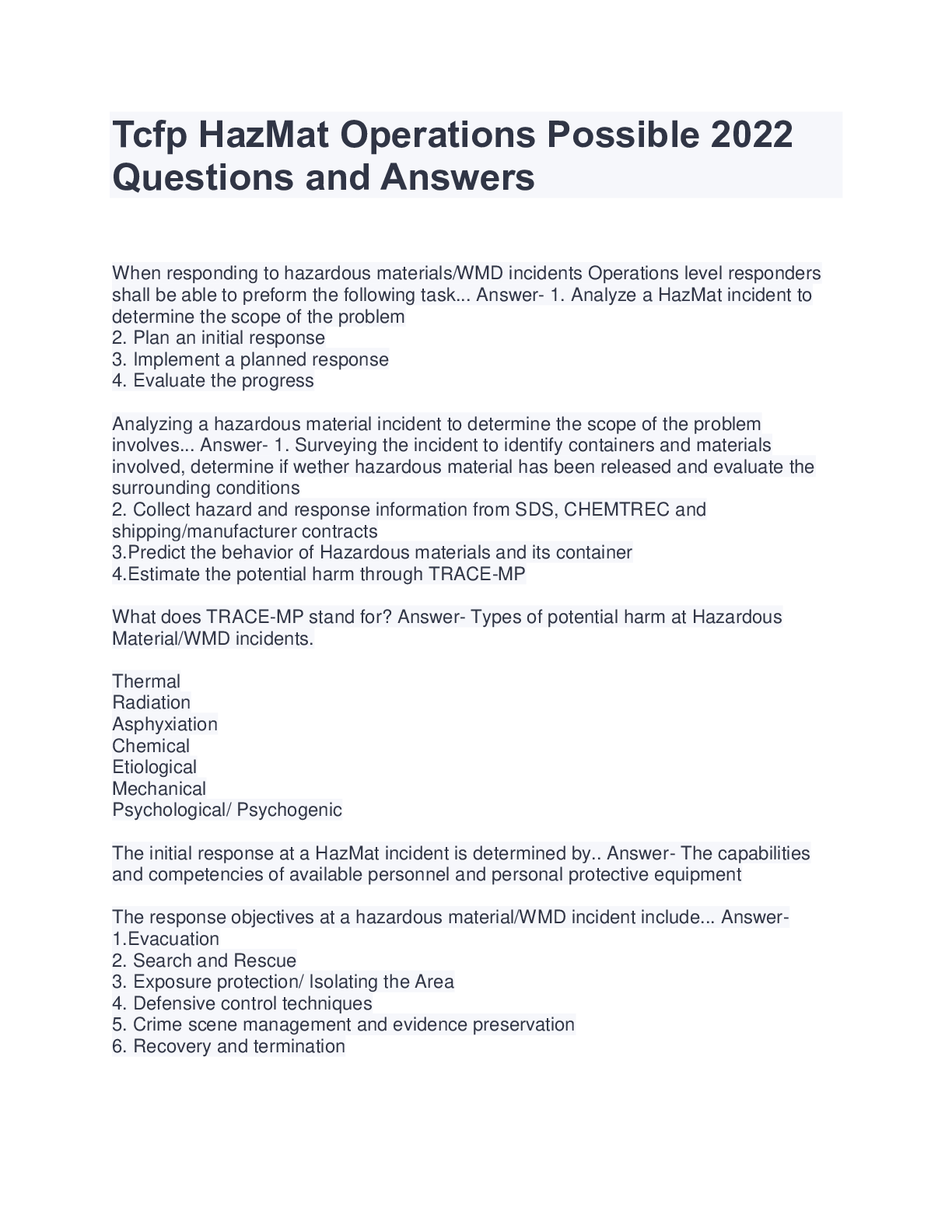

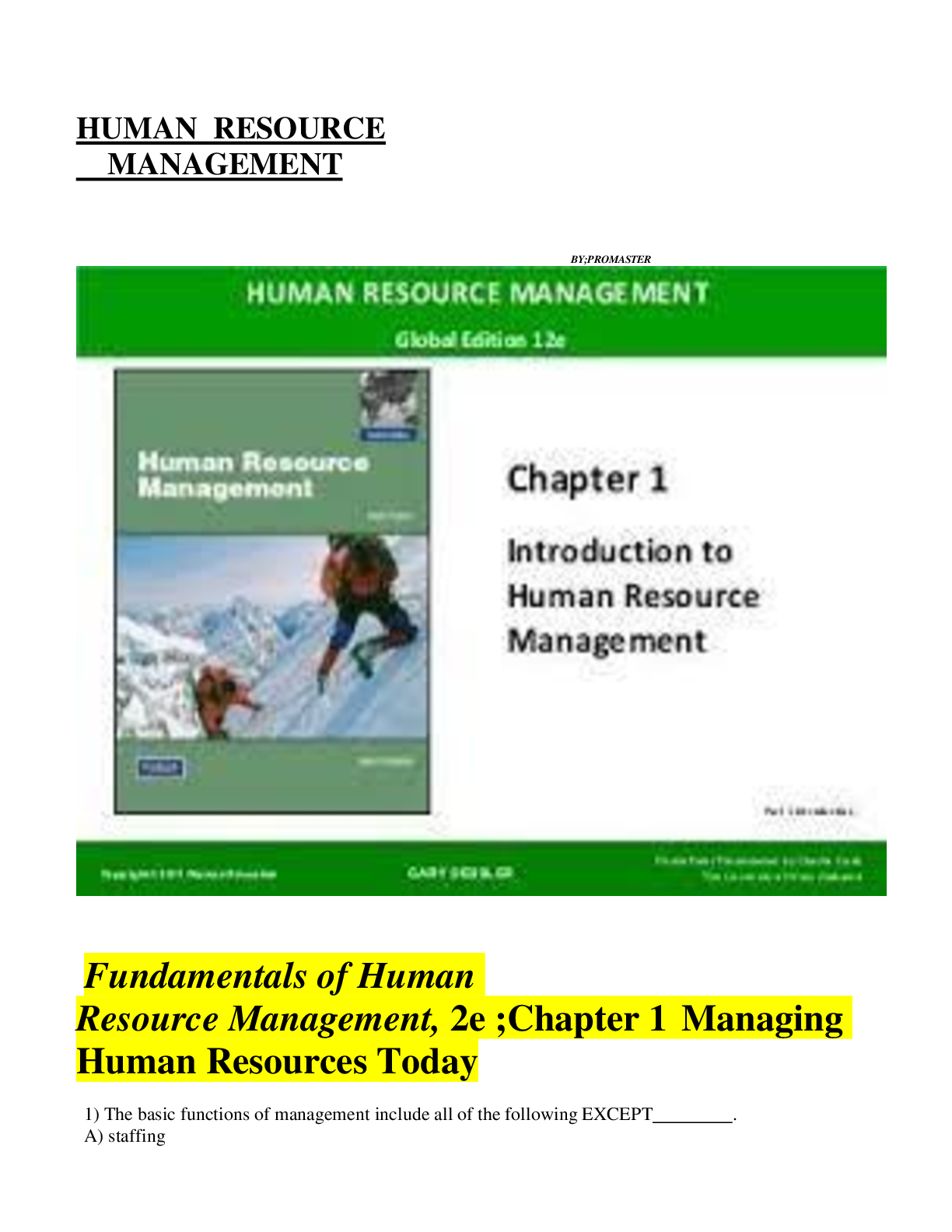
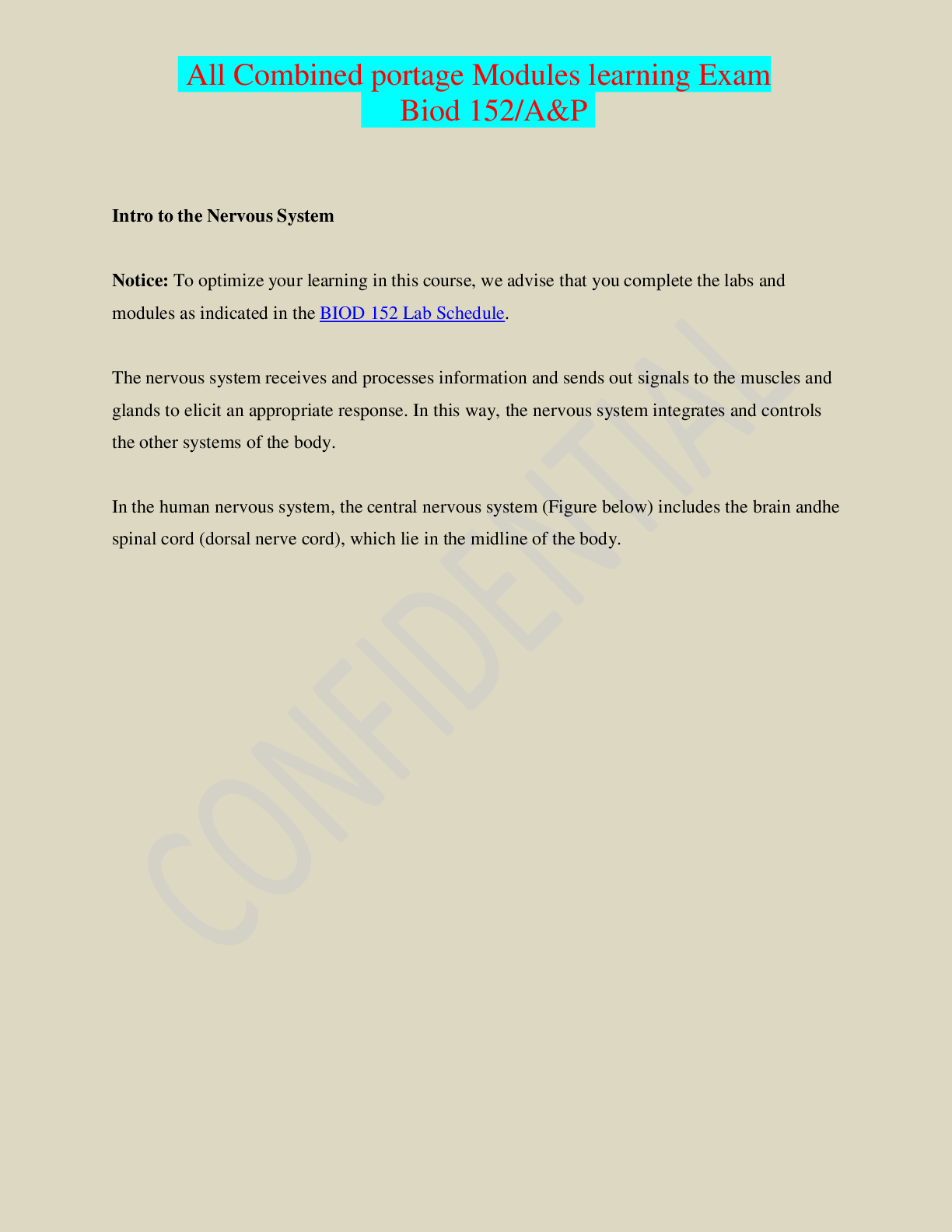
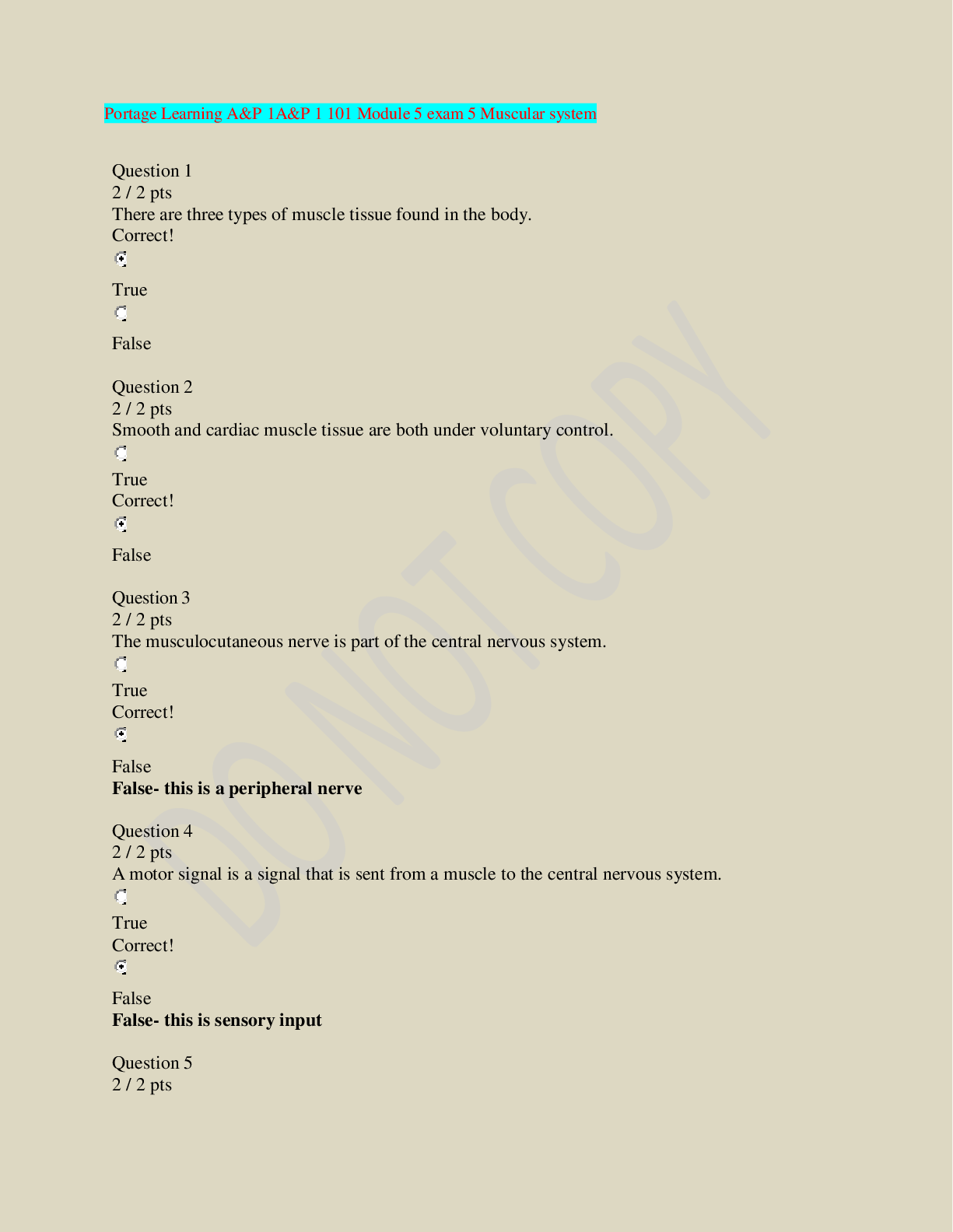
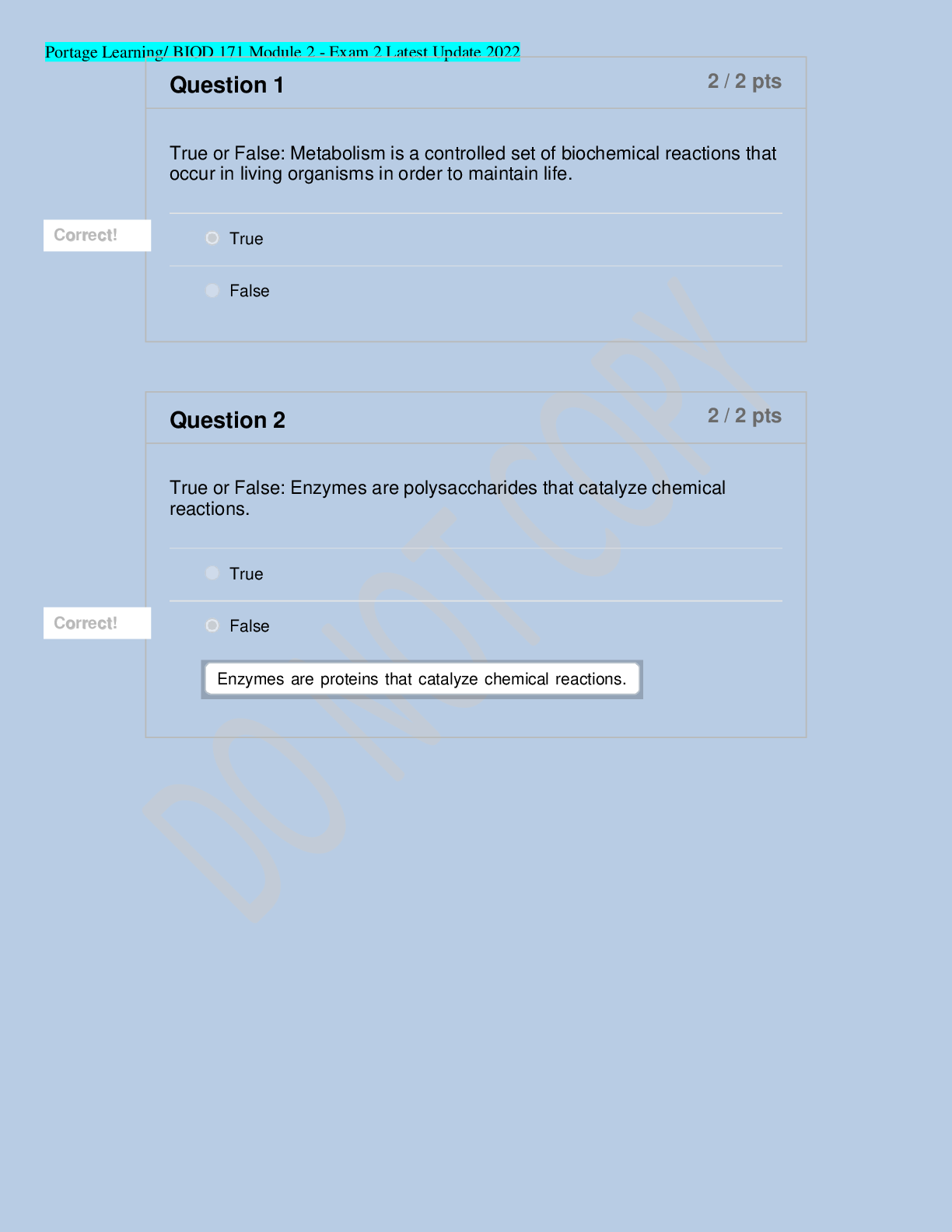
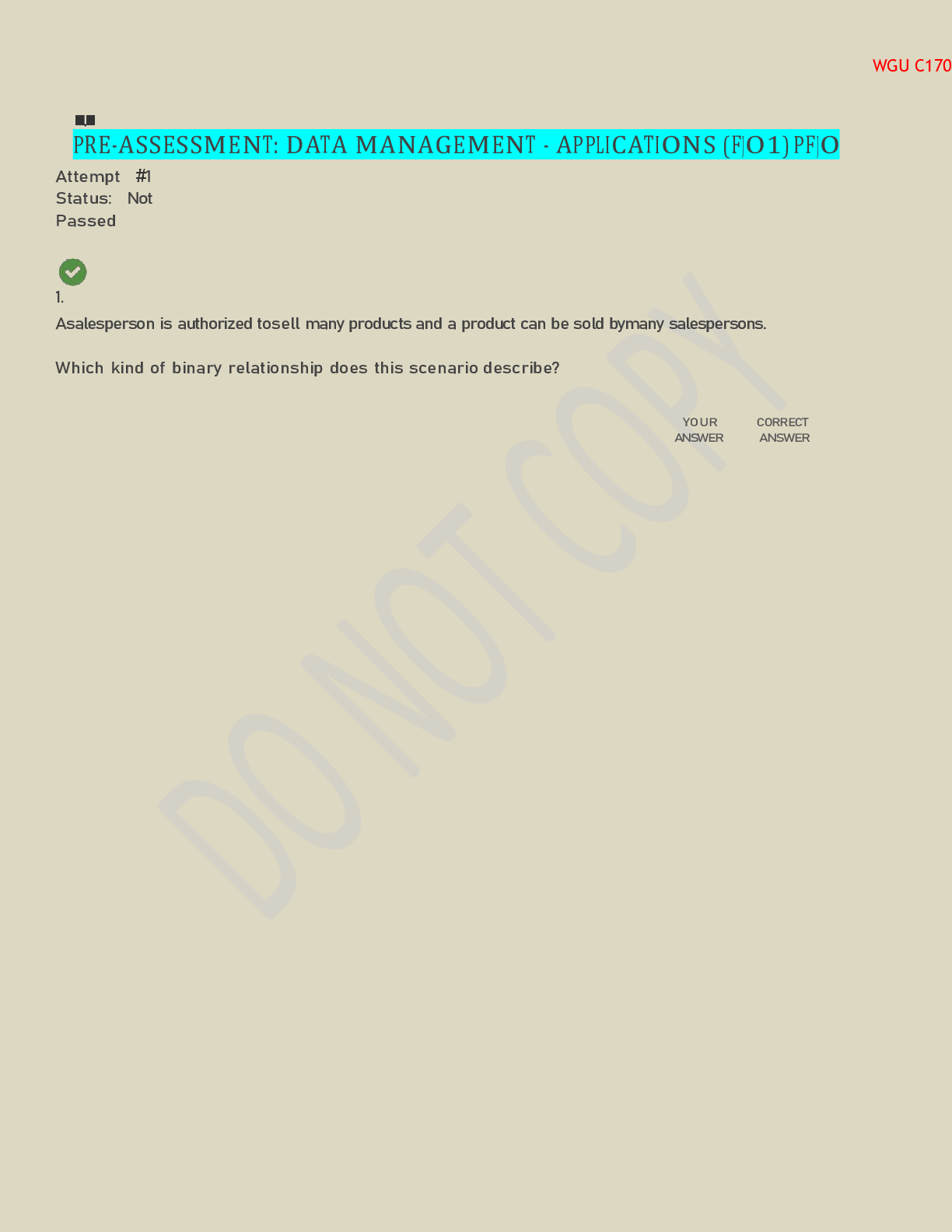
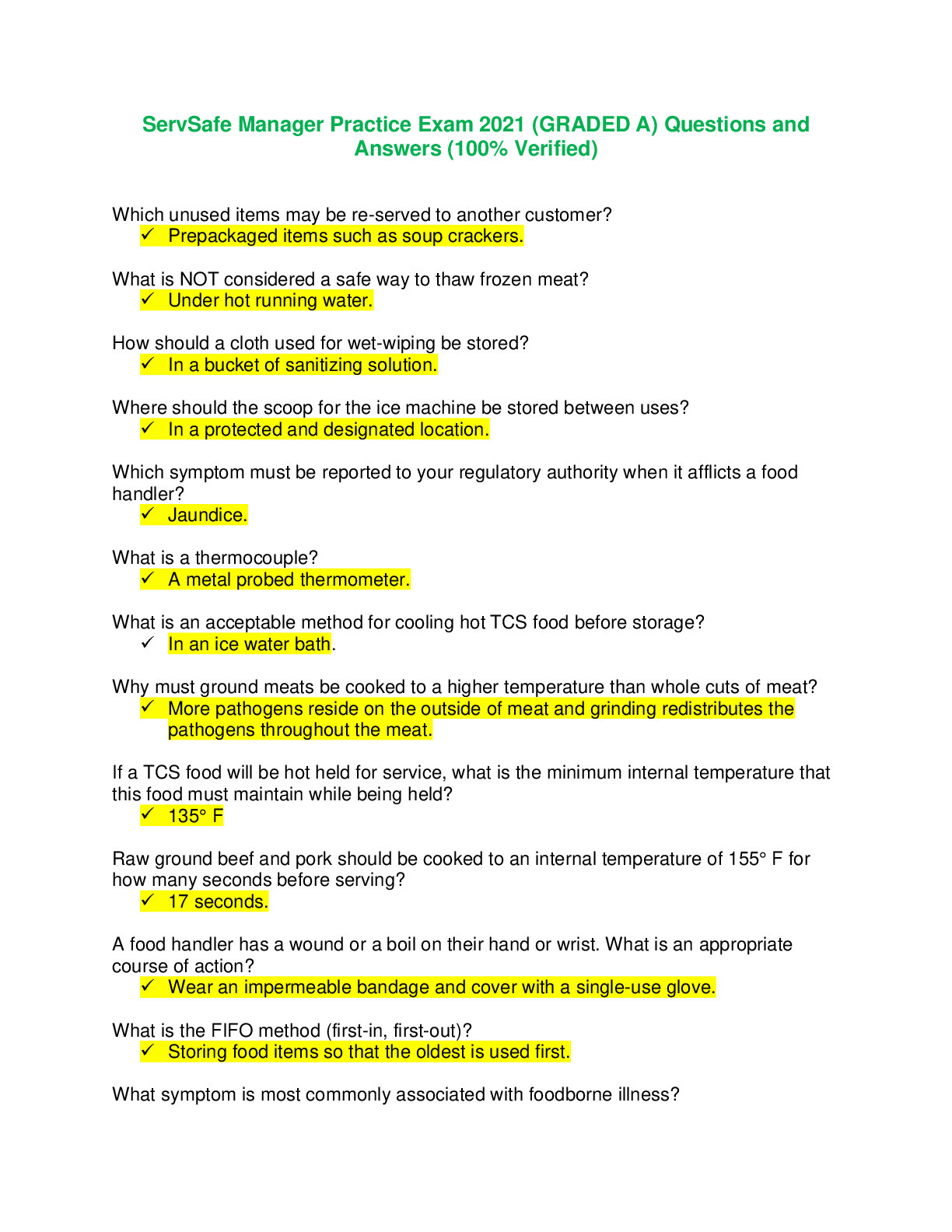
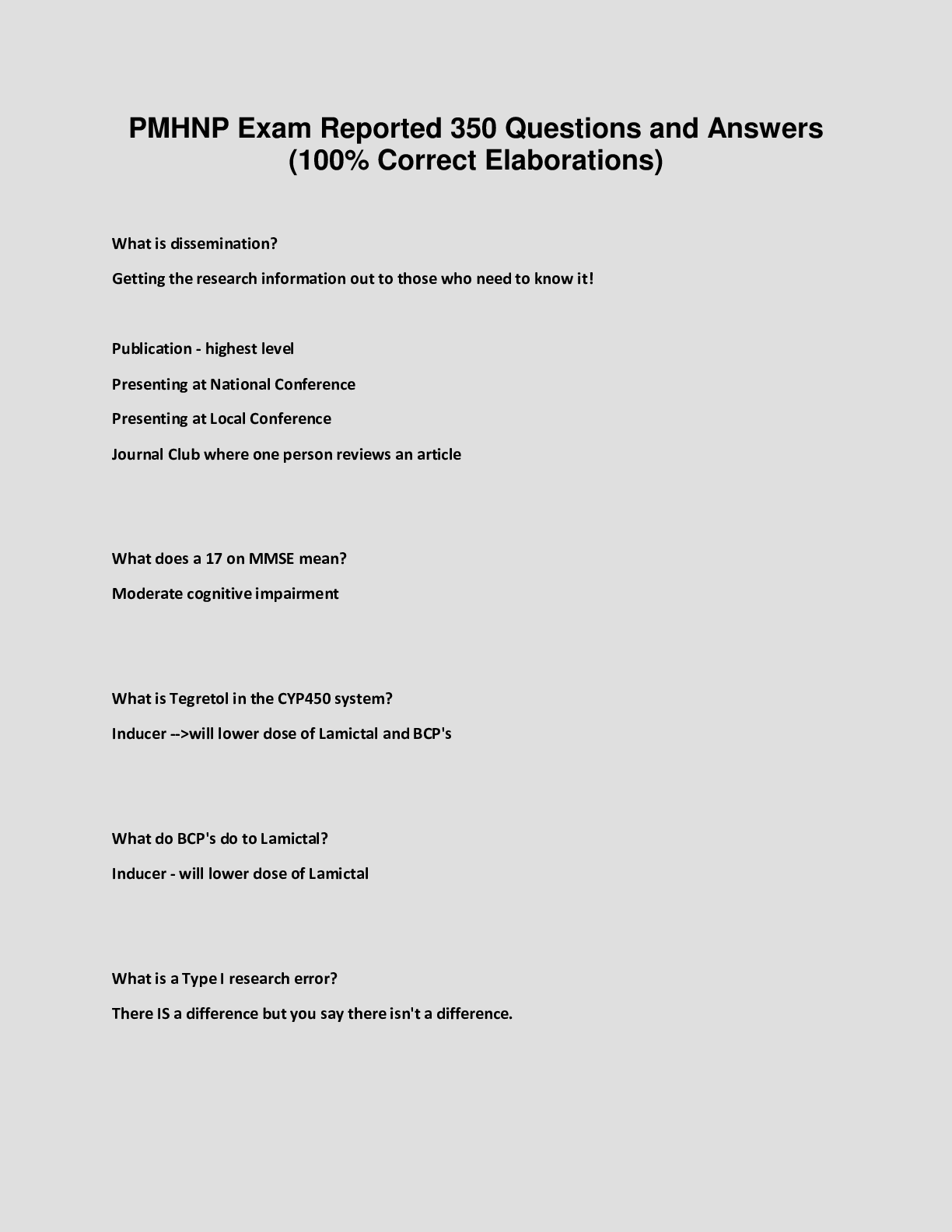
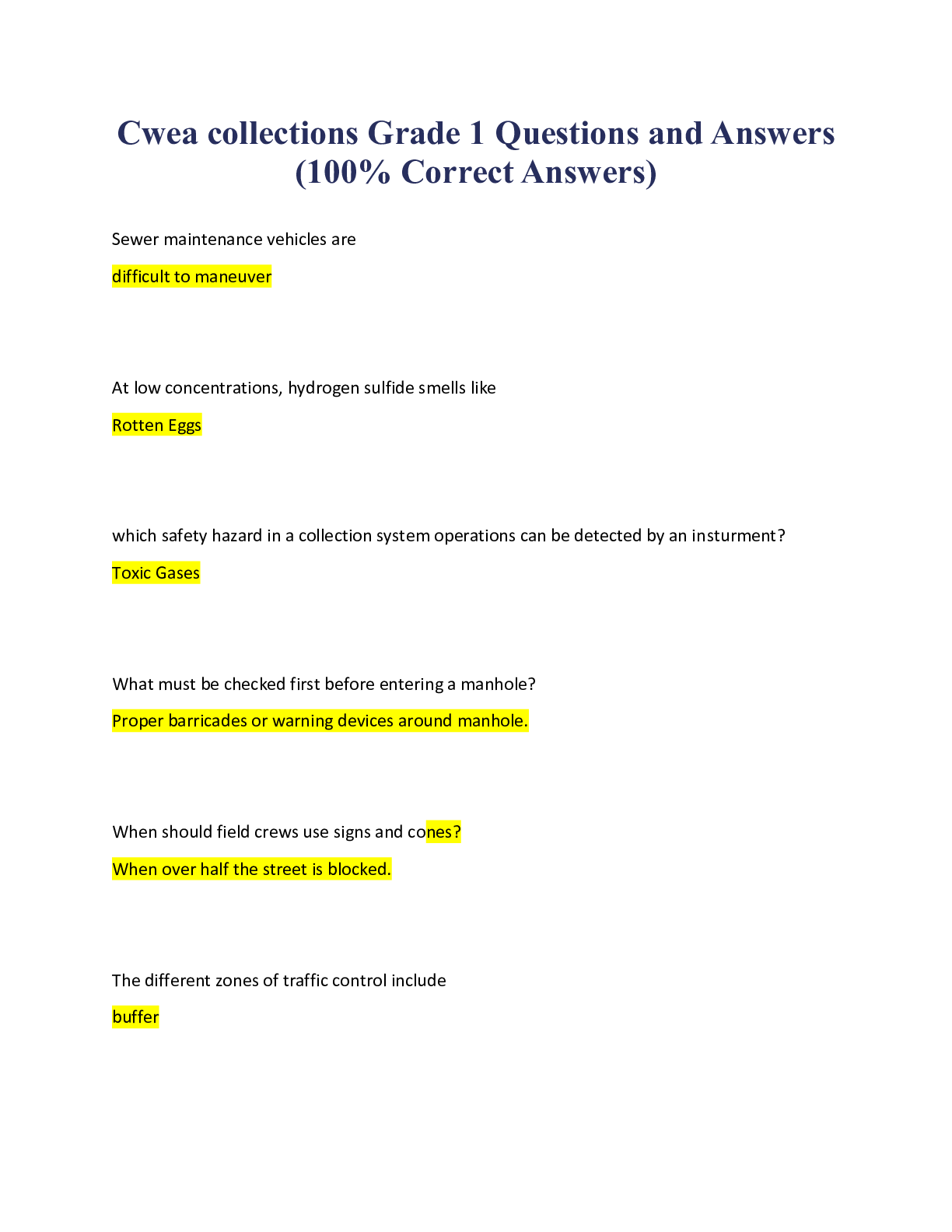
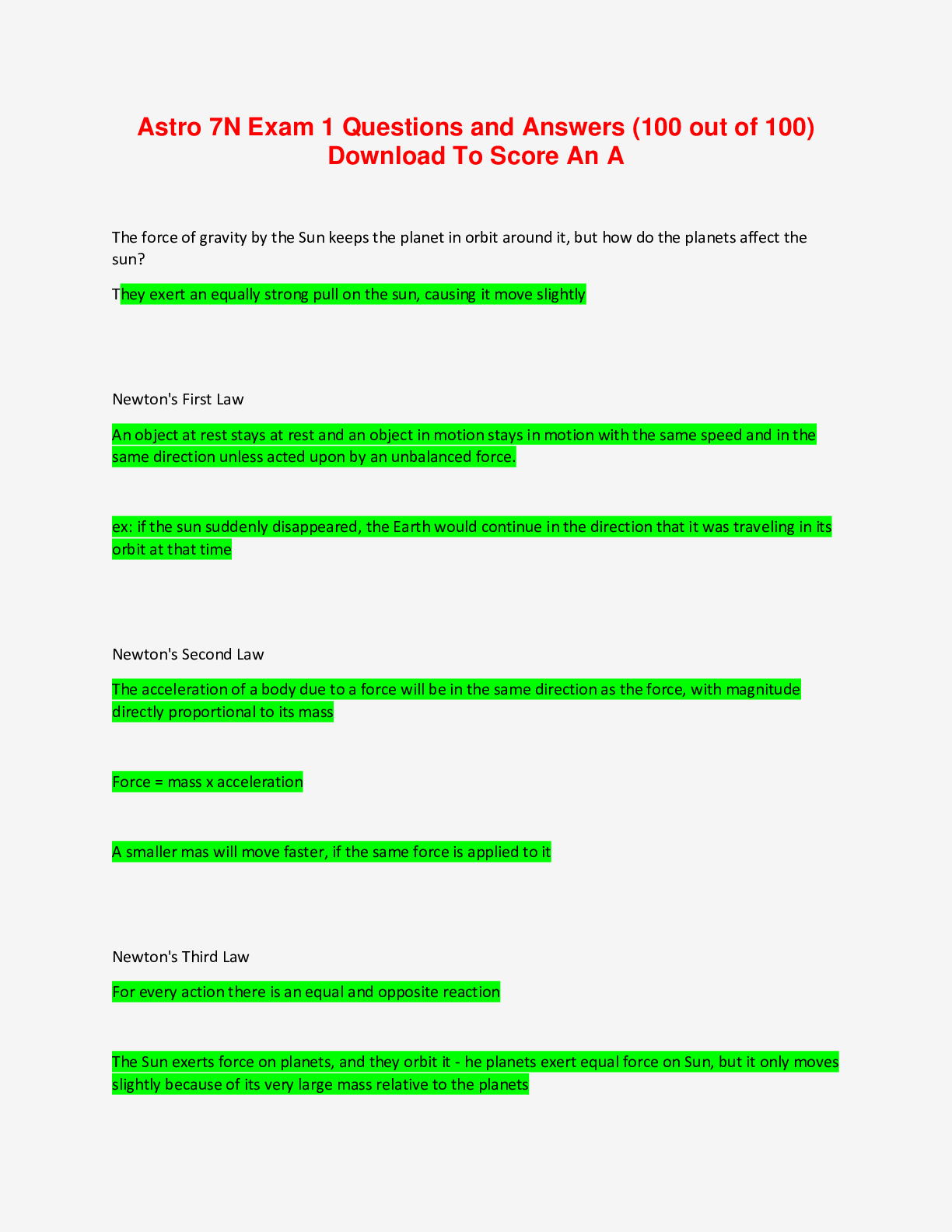
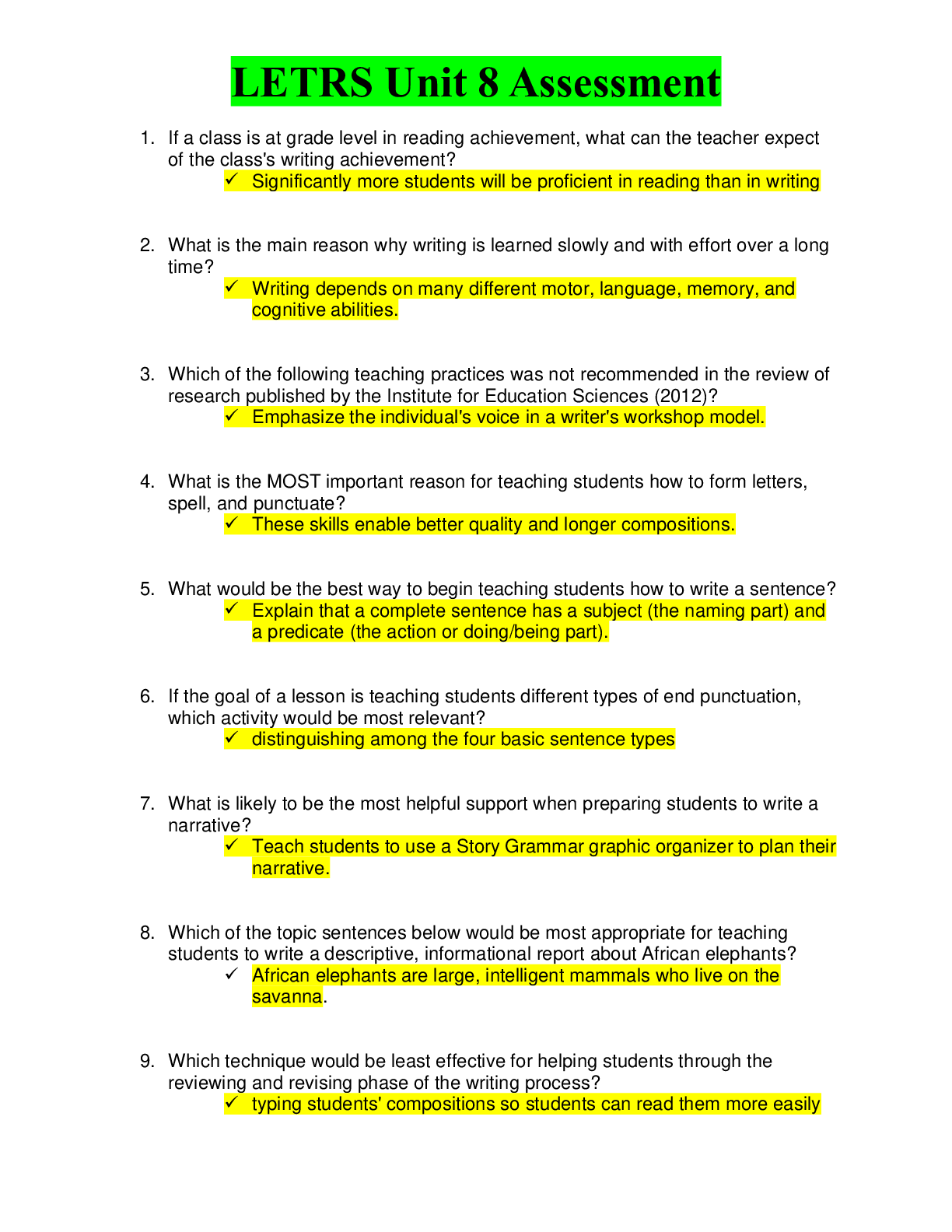
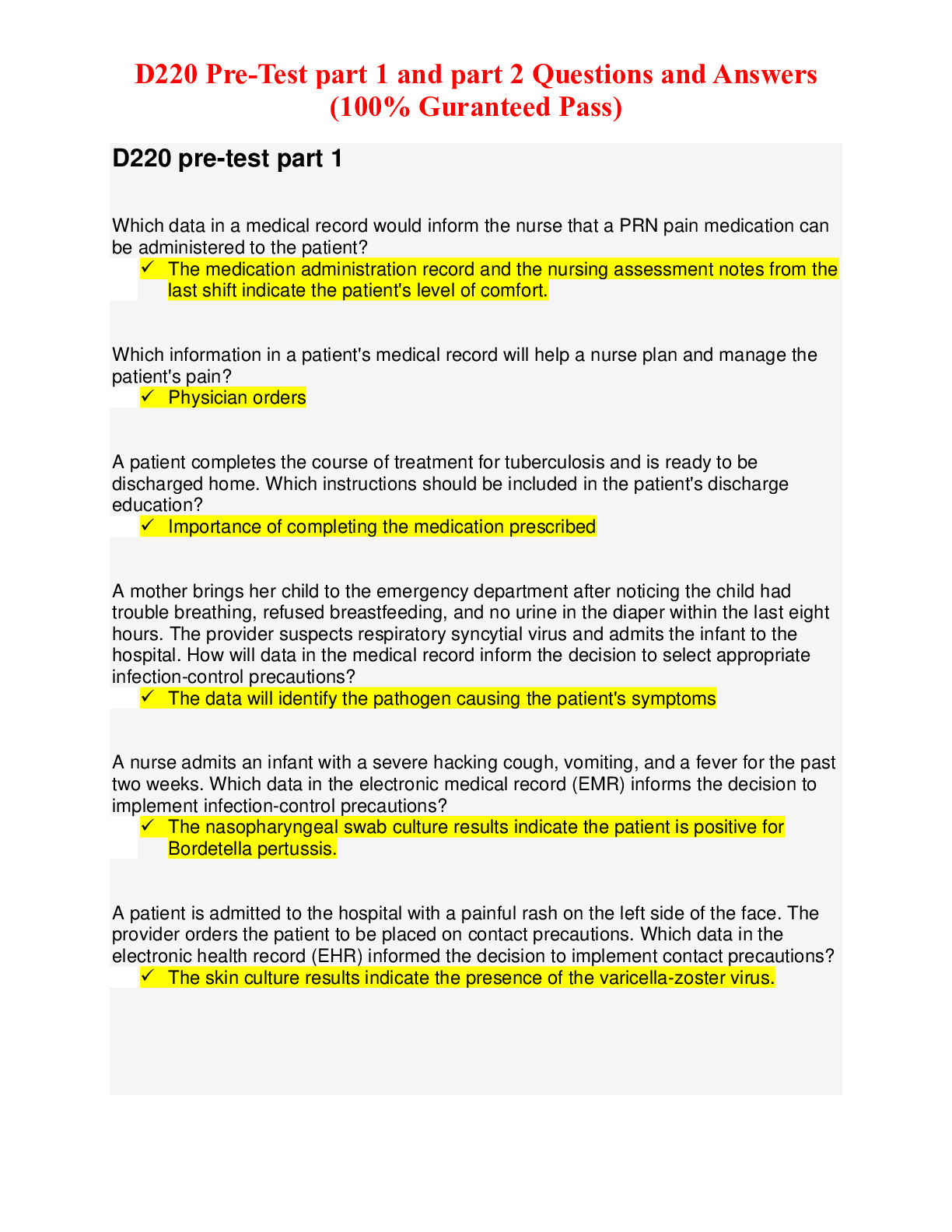
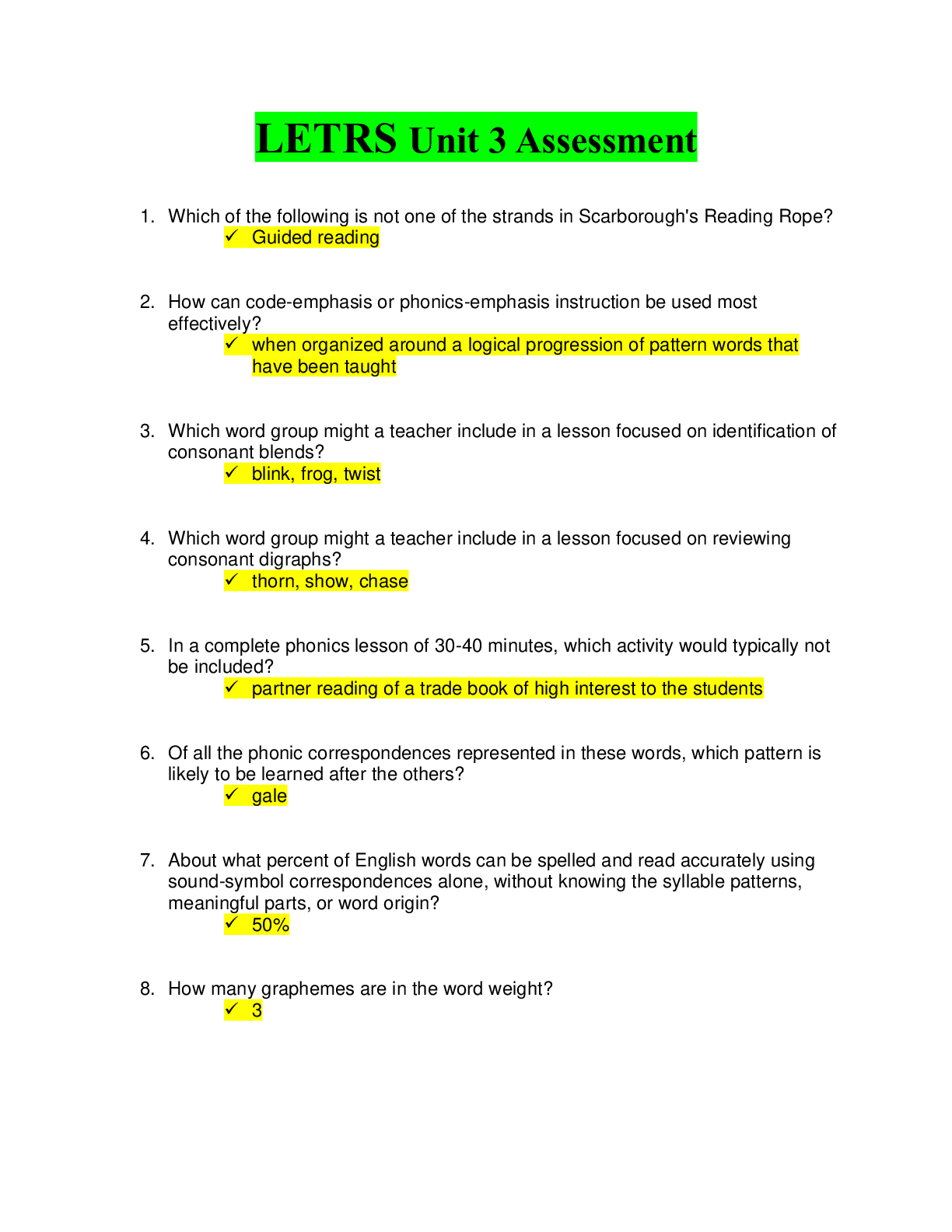
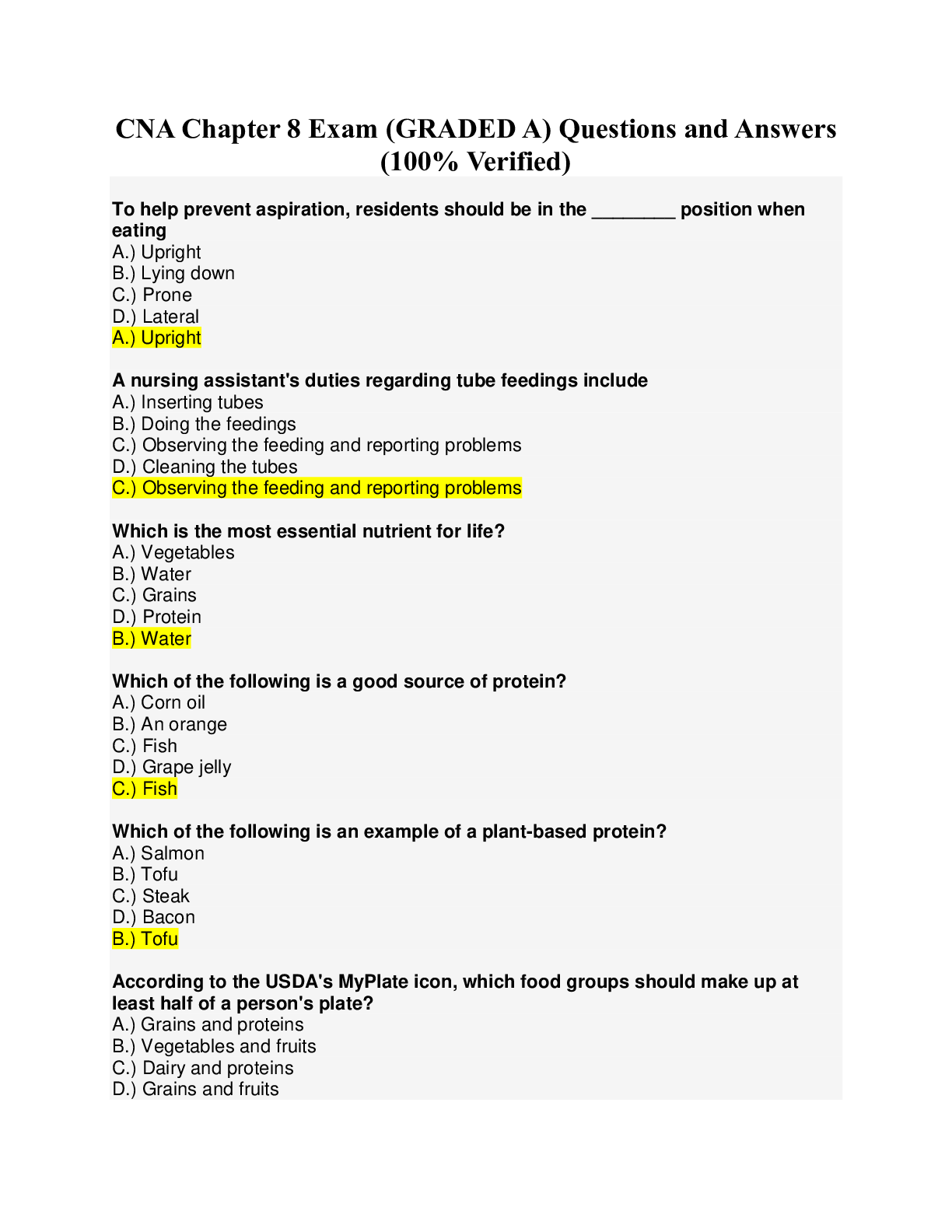
 (1).png)
